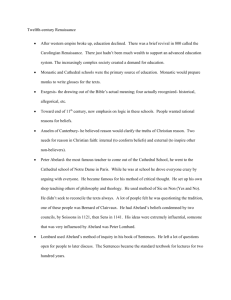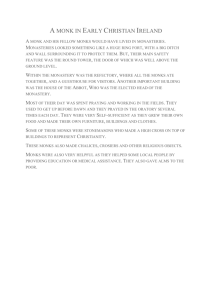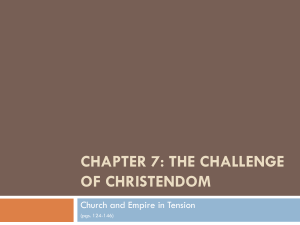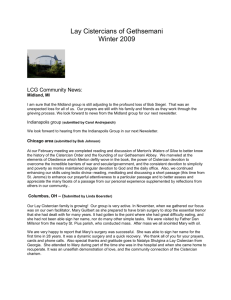Miscellaneous Notes: Monks and Monasteries
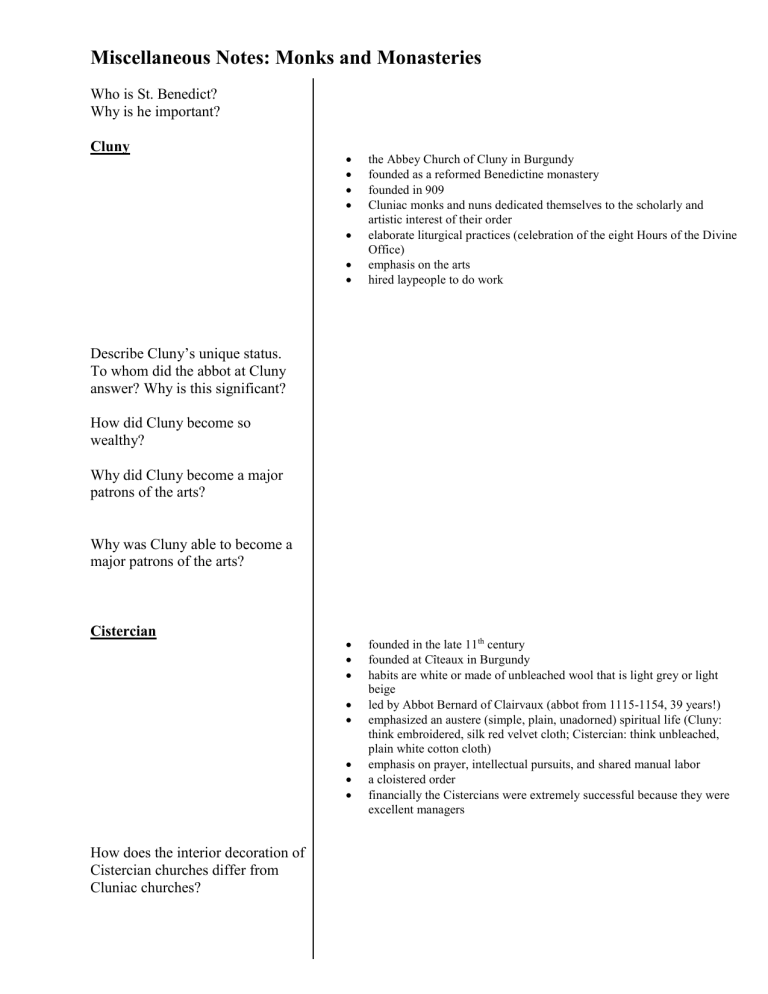
Miscellaneous Notes: Monks and Monasteries
Who is St. Benedict?
Why is he important?
Cluny
Describe Cluny’s unique status.
To whom did the abbot at Cluny answer? Why is this significant?
How did Cluny become so wealthy?
Why did Cluny become a major patrons of the arts?
Why was Cluny able to become a major patrons of the arts?
Cistercian
How does the interior decoration of
Cistercian churches differ from
Cluniac churches?
the Abbey Church of Cluny in Burgundy
founded as a reformed Benedictine monastery
founded in 909
Cluniac monks and nuns dedicated themselves to the scholarly and artistic interest of their order
elaborate liturgical practices (celebration of the eight Hours of the Divine
Office)
emphasis on the arts
hired laypeople to do work
founded in the late 11 th century
founded at Cîteaux in Burgundy
habits are white or made of unbleached wool that is light grey or light beige
led by Abbot Bernard of Clairvaux (abbot from 1115-1154, 39 years!)
emphasized an austere (simple, plain, unadorned) spiritual life (Cluny: think embroidered, silk red velvet cloth; Cistercian: think unbleached, plain white cotton cloth)
emphasis on prayer, intellectual pursuits, and shared manual labor
a cloistered order
financially the Cistercians were extremely successful because they were excellent managers
Franciscan
Dominican
founded in 1205 by St. Francis of Assisi
founded in Assisi, Italy
habits are brown
emphasized living a life that imitates as closely as possible the life of
Christ; Franciscan monks owned nothing except their clothes; they take a vow of poverty and obedience; they were forbidden to touch money; they earned their daily bread by working or by begging; they spent their time out among the regular people (popolo) preaching or alone in hermitages praying and meditating
founded by Saint Dominic in the early 13th century in France
habits are black
founded to preach the gospel and to combat heresy; regarded as the loyal guard dogs of the Catholic Church
the order is famed for its intellectual tradition, having produced many leading theologians and philosophers


